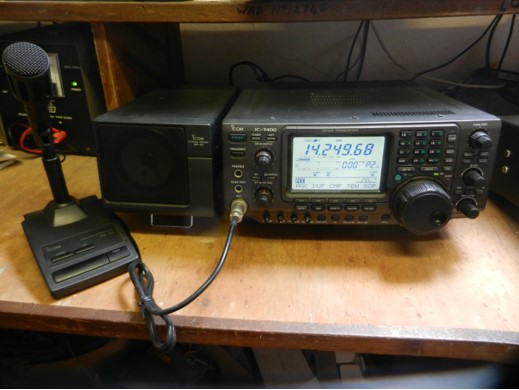Want to know what amateur radio is about?
I have been a licensed radio amateur for nearly 48 years. I could guarantee that when any of my friends discovered that I was a “Ham” they would ask me two questions. First “is that like CB” (Citizens Band Radio) and second, did I see the Tony Hancock show when he did “The Radio Ham”.
The image of amateur radio has never recovered. Indeed the show was very funny and recordings are still to be found.
Part of human nature is that we have different perceptions of what goes on around us. In the US radio amateurs are seen as valuable people in the community. They are practical people who have technical knowledge and they are the ones to go to for help and advice.
In the UK, radio amateurs are often seen in a different light. We are “geeks” or “anoraks ” or “strange people who play with old radios in the garden shed”.
So what exactly do we do? Let me give you some background information:
The Amateur Radio hobby is global. All Radio Amateurs have proved themselves technically competent by passing examinations in their respective countries to obtain a license to transmit. Each Amateur is given a unique call sign to identify themself. That call sign in turn carries a unique prefix to identify the country of origin. There are 2 million of us!
Radio Amateurs, unlike their CB cousins, are allowed to build or buy their transmitting and receiving equipment. Quite what attracts people to such a technical hobby is not certain, but let me pose a question – if Marconi had not been interested in radio, where would we be now?
It is true that some Amateurs like to maintain and operate vintage equipment, indeed rarity makes some of it highly valuable and sought after. Modern Amateur equipment employs the very latest state of the art techniques and components but innovation still occurs.
Experimentation is the name of the game. Trying lots of things and seeing what works best is the normal for radio amateurs. History is full of technical advances that have been discovered and developed by Radio Amateurs playing in a shed. RADAR is an example.
People are usually surprised to learn just what Amateurs are able to do. OK, we send Morse code and talk to each other on short wave, but we also use computers extensively for data transmission, send high definition colour TV pictures, put Amateur communications satellites in orbit, bounce signals off the moon and even off the Aurora Borealis.
Several of the crew on the International Space Station are Radio Amateurs and they regularly talk to Amateurs back on Earth. We also offer our communications capabilities to support the emergency services when needed.
Many Radio Amateurs are quite competitive and compete against each other to see who can contact the most other stations. Single operators or teams take part in all sorts of contests and often spend months planning and assembling the best possible equipment to give them that edge.
For those who like holidays with a difference, some Amateurs travel to remote islands or mountain peaks all over the world just to set up a station and speak with tens of thousands of other Amateurs world-wide.
Radio transmissions are very much affected by atmospheric conditions. There are two major contributors, the Sun and the weather. Most people have heard of Sun Spots and of course the Aurora Borealis or Northern Lights, but few understand the part these all play and how with the right conditions and very little power almost unbelievable distances can be achieved. Sometimes signals from the other side of the world are as strong as stations just down the road.
So how do you get a licence? The licence is gained in three stages in the UK. They are Foundation, Intermediate and Full. As you might expect, the Foundation stage is quite basic. A little study and a one day course which concludes with a straight forward test gets you on air. Yes you have restricted power but you would be amazed what can be achieved with modest equipment.
Once on air, experience helps decode the technical mumbo jumbo and you are on the way to an Intermediate license. With that comes the reward of more frequency allocation and a step up in transmit power.
Finally with some more study and practical experience a full license can be achieved. This allows maximum permitted transmit power and access to all the allocated amateur bands.
There are no time limits to your progress through the hobby or control over what mode of operation you choose to use.
If you are just a little bit curious about Amateur Radio and want to find out if it might be the hobby for you, “Google” it.
You will find lots of radio clubs around the country whose members come from all walks of life. If you need help or advice it is certain that you will find it there. It is a hobby that you can leave and pick up again at any time. Many have breaks from the hobby perhaps for work reasons or to raise a family and pick it up again years later.
Most of the radio clubs offer training courses at all three levels. Worthing and District Amateur Radio Club (WADARC) is one such club. It meets weekly and has regular activity nights and talks by guest speakers. The club has an excellent array of radio equipment and some keen contesters.
So why not give it a try, come along to a WADARC meeting. It might be the hobby for you and it might change your perception of amateur radio.
Best wishes
Graham Lindsay (call sign G8BZL).
